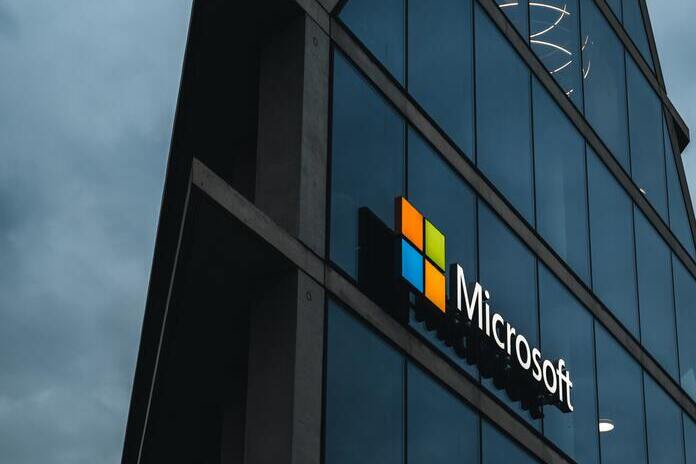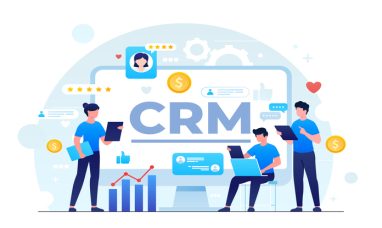Microsoft (NASDAQ:MSFT) revealed suddenly on February 7, 2023, that it had integrated cutting-edge ChatGPT technology into its Bing search engine and Edge web browser. This conversational AI function has been created to capitalize on the increased enthusiasm and interest in chatbot technology. This is a significant step forward in Microsoft’s attempt to capitalize on ChatGPT’s present popularity.
As a result of its most recent action, we believe Microsoft has become a far more serious opponent to Alphabet’s Google Search. As a result, we believe the company is now well-positioned to capture a big portion of the lucrative search advertising industry.
Prior to the announcement, the top tech giants had begun an AI arms race, with Microsoft and its partner, OpenAI, obviously in the lead.
According to Greg Brockman, President of OpenAI, over a million users registered for ChatGPT in the first five days after its launch on November 30, 2222. The attributes of the application have piqued people’s interest, amusement, and alarm, sparking a lot of discussion on social media. We believe the chatbot was a big success because it achieved 100 million monthly active users within two months after its November launch. According to a study conducted by the Swiss bank UBS, they had never seen a consumer online app expand this quickly in the 20 years they had been monitoring the internet area.
When ChatGPT was discovered, Alphabet’s (NASDAQ:GOOGL) management issued a “code red,” indicating that the corporation is under serious threat, according to the NYTimes. Some people are concerned that this heralds a disruptive technological revolution that will materially impact the company’s operations. For more than 20 years, people have mostly used Google’s search engine to access the internet. However, Google’s core search business may face a significant challenge from emerging chatbot technology, which might substitute traditional search engines. According to one Google executive, this is a “make or break” moment for the company’s future.
Microsoft and OpenAI formed a strong collaboration in 2020, and Microsoft obtained an exclusive license for the GPT-3 technology. GPT-4, an update to GPT-3, is set to be released in early 2023. It will be significantly more powerful than the existing GPT-3 version. The rapidity of creation appears to have caught Alphabet off guard and compelled it to act.
Live from Paris
Google responded the next day by demonstrating a number of AI-related advancements to its search engine at a recent event in Paris. For example, it seeks to provide detailed text responses to difficult questions with no one correct answer, such as “what are the finest constellations to look for when stargazing?” This declaration follows the release of a preview of Bard, one of Google’s own chatbots that competes with ChatGPT. However, Bard’s example accidentally demonstrated how difficult it may be to employ AI technologies when one of the options it provided was incorrect.
We were underwhelmed by Alphabet’s recent “Google Live from Paris” event. Microsoft had enabled ChatGPT for Bing search the day before, but the business did not reply promptly. This summed up Google’s present quandary: balancing the risks of making too many AI improvements with the fear of falling behind the competition if they move too slowly.
Microsoft Is Prepared to Increase its Market Share
Despite having extensive expertise in generative AI, Google appears to be taking its time deploying new capabilities. Microsoft, on the other hand, has a competitive mindset, as seen by words like “The race begins now, and we’re going to move quickly” said at the event where they announced an AI-powered search in Bing and Edge. We believe Google can develop high-quality generative AI products, but it will take time to catch up to Microsoft and OpenAI. The concept that Google will ever catch up is based on the assumption that it would accelerate the pace at which its products are delivered in the future.
Microsoft, in our opinion, has a competitive edge due to its speed and willingness to accept lower profit margins in exchange for a larger market share. Satya Nadella, CEO of Microsoft, stated that the company is not reliant on the strong gross margins observed in Alphabet’s search advertising division. This means that Microsoft may establish a successful business while having a substantially smaller gross margin. The company is a strong competitor to Alphabet since it is fast, has low-profit margins, is large, and has a lot of resources.
Although sales growth has slowed, we remain optimistic about Microsoft’s future. The company’s sales increased 18% over the previous year in the fiscal year 2022. The growth rate is predicted to fall to 5.4% in the fiscal year 2023. This is mostly due to a decline in PC sales, which we view as a transitory hiccup that will allow the company to expand more quickly in the future.
We expect Microsoft’s sales to grow in the low to mid-teens over the next three fiscal years, with earnings per share increasing by around 20% per year. With this growth potential and a forward price-to-earnings ratio of 26, Microsoft stock appears to be a terrific spot to invest.
Risks
Even while ChatGPT’s integration with Bing has been successful, if the “new Bing” grows in popularity, the company may face difficulties. Failure to meet high expectations, damage to the chatbot’s reputation if it says anything controversial, such as something racist and considerably greater operational costs are just a few of these issues.
Capturing a portion of a decreasing market may become more difficult if the overall state of the economy deteriorates. As a result, Microsoft and Alphabet may have to pay more. Businesses may decide to reduce their investments if demand is lower than predicted like Meta did when it reduced spending on its metaverse initiative. If Microsoft is forced to cut back on advertising, it may lose market share rather than gain it from Alphabet.
Bottom Line
The recent incorporation of Microsoft’s ChatGPT technology into Bing search is a significant shift that might have a substantial impact on the search advertising industry. Alphabet’s audacious ambition of implementing cutting-edge AI technology distinguishes it from its major competitor. This demonstrates Microsoft’s commitment to providing a better user experience and staying on top of trends in a fast-changing digital industry. We believe Microsoft’s search advertising business is well-positioned for growth due to its competitive advantage and fair pricing. Microsoft stock has gained nearly 12% year-to-date.
Featured Image: Pexels @ Salvatore De Lellis









